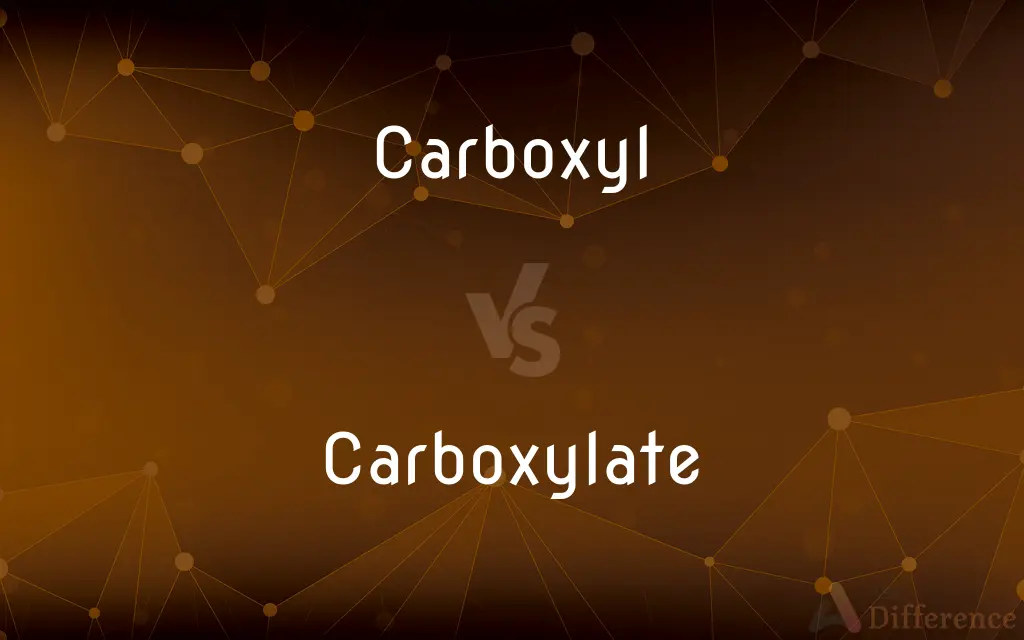Carboxyl vs. Carboxylate — What's the Difference?

Difference Between Carboxyl and Carboxylate
ADVERTISEMENT
Compare with Definitions
Carboxyl
The univalent group, -COOH, the functional group characteristic of all organic acids.
Carboxylate
In organic chemistry, a carboxylate is the conjugate base of a carboxylic acid, RCOO− (or RCO−2). It is an ion with negative charge.
Carboxyl
(organic chemistry) A univalent functional group consisting of a carbonyl and a hydroxyl functional group (-CO.OH); characteristic of carboxylic acids.
Carboxylate
A salt or ester of an organic acid, derived from the carboxyl group. Soaps, which are usually the sodium or potassium salts of fatty acids, are carboxylates.
Carboxyl
The complex radical, CO.OH, regarded as the essential and characteristic constituent which all oxygen acids of carbon (as formic, acetic, benzoic acids, etc.) have in common; - called also oxatyl.
ADVERTISEMENT
Carboxylate
Of or relating to a carboxylate.
Carboxyl
The univalent radical -COOH; present in and characteristic of organic acids
Carboxylate
Of or relating to the anionic conjugate base of a carboxylic acid, specifically the CO22- group
Carboxyl
Relating to or containing the carboxyl group or carboxyl radical
Carboxylate
(organic chemistry) Any salt or ester of a carboxylic acid.
Carboxylate
(organic chemistry) To form a carboxyl group by introduction of carbon dioxide
Carboxylate
(organic chemistry) To react with a carboxylic acid
Carboxylate
To treat a chemical compound with carboxyl or carboxylic acid.
Carboxylate
Treat (a chemical compound) with carboxyl or carboxylic acid
Share Your Discovery

Previous Comparison
Brick vs. Masonry
Next Comparison
Minor vs. Child













































